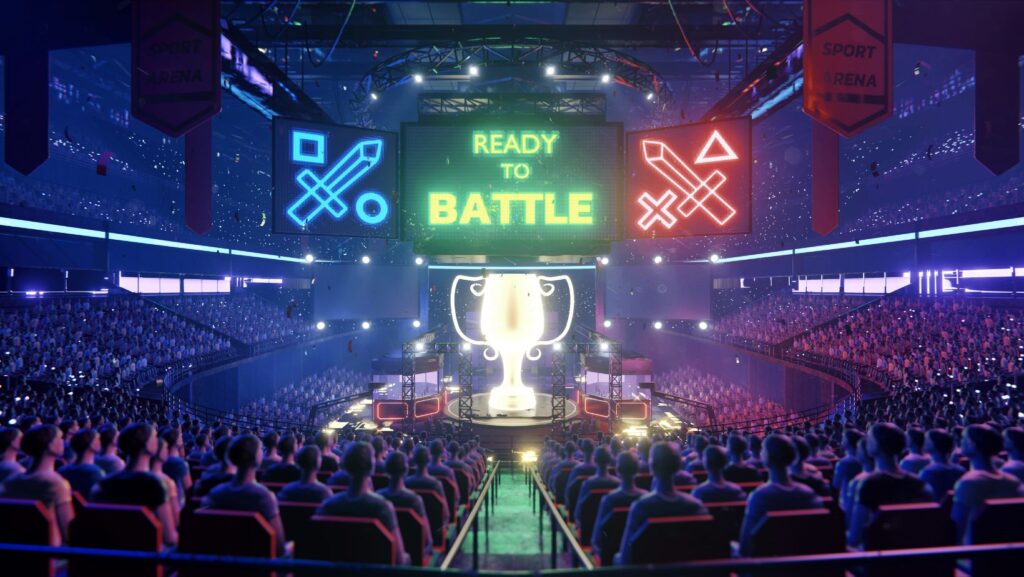
As of 2024, esports continues to shatter records. Viewers spent 2.7 billion hours watching competitive gaming content this year, a 75% increase compared to 2019. Notably, games like League of Legends (LoL) and Counter-Strike consistently dominate the landscape, with the 2023 League of Legends World Championship recording a peak viewership of over 6.4 million. The steady rise in viewership numbers is one of the key drivers behind the growing popularity of esports betting.
Unlike traditional sports, esports matches are broadcast globally on platforms like Twitch and other streaming services, making them accessible to millions of fans. A significant portion of esports content, almost a third, is watched through co-streaming channels, giving esports an even broader reach. It has allowed bookmakers, including platforms like Süperbahis, to tap into a large, engaged audience eager to place bets on the outcome of high-stakes matches.
Betting in the Esports Ecosystem
The global esports betting market has been steadily growing, with some operators reporting a 37% increase in the average amount wagered per bet in 2023. Across popular titles, esports betting has matured into an evergreen vertical, with Counter-Strike: Global Offensive (CS) continuing to lead in betting turnover. It accounted for over 60% of the total betting volume for some operators. Dota 2 and League of Legends closely followed, though LoL has seen slight declines in betting activity recently, mainly due to viewership dips in certain regions like North America.
More recently, a newer contender, Valorant, has shaken things up in the esports betting scene. Its fast-paced gameplay and growing popularity, especially in the U.S., have made it a favorite among bettors. Live betting, in particular, has surged with Valorant, now accounting for around 65% of all esports wagers. It reflects a broader trend across esports and traditional sports, where real-time, in-play betting options have become a key driver of engagement.
Bettors in esports have many options, mirroring traditional sports betting with the finest apps. One of the most popular is the money line, a straightforward bet on which team will win the match. For those looking for more complexity, spread betting is also available, where bettors wager on the margin of victory.
Additionally, over/under bets allow fans to gamble on the total number of rounds, kills, or points in a game, adding excitement. Esports bettors can also enjoy prop bets, which focus on specific in-game events, like which player will secure the first kill or which team will take the first objective.
How Video Games Are Shaping Modern Betting
Audience Engagement and Esports Betting Boom
One of the most compelling reasons for the surge in esports betting is the deep level of engagement between fans and the games. Unlike traditional sports, where the barrier to entry is high in terms of skill, video games allow a more intimate connection. The fans are often players themselves, which means they understand the mechanics, the strategies, and even the risks of every move made during the game.

Top games have massive followings, with League of Legends World Championships attracting viewership numbers comparable to major sporting events. When millions are watching, many want to participate in the action. Betting becomes a way to amplify the excitement, making people feel more involved in the outcome.
Technological Innovations and Access to Betting
Esports betting owes much of its growth to technological advancements. Mobile apps now make placing bets on live matches quick and easy, giving fans more ways to engage. Specialized betting platforms cater to the esports audience by offering features like in-play betting, live streaming, and real-time odds, making the experience interactive and fast-paced.
The introduction of blockchain and cryptocurrency has also added flexibility. Platforms that accept Bitcoin or Ethereum offer enhanced security and anonymity, appealing to a broader range of bettors and adding new dimensions to the esports betting market.
In-Game Skins and Their Influence on Betting
One of the more unique trends in esports betting is the concept of “skin betting.” In some games like CS, players can purchase or win skins—virtual items that change the appearance of weapons or characters. While these skins do not affect gameplay, they have real-world value, with some rare skins fetching thousands of dollars on third-party markets.
Skin betting adds a different perspective to esports gambling because it appeals to those who may not want to wager cash but are willing to risk their in-game assets. It blurs the line between gaming and gambling, drawing in a whole new subset of people who might not have been interested in traditional sports betting.
Although regulators have begun scrutinizing this form of betting, it remains a powerful force driving the growth of esports wagering, especially among younger players who see skins as a form of self-expression and currency.
The Role of Professionalization and Sponsorships
Esports’ growing professionalism, with structured teams and big-name sponsors like Coca-Cola and Red Bull, has brought credibility to esports betting. As millions flow into tournaments, the competitions have become more formalized, creating a stable environment for betting.

Better data and event coverage now allow betting companies to offer more accurate odds, making wagering feel more calculated. Sponsorships also drive partnerships between tournaments and betting platforms, integrating betting into the esports viewing experience, similar to traditional sports like the NFL or NBA.
Summary
As more young people become involved in esports, wagering trends are set to evolve even further. With their deep connection to gaming and comfort with digital platforms, this generation will push for more innovative and interactive betting experiences, from live, in-play bets to the growing use of cryptocurrency. Their influence will likely expand the market, introducing new forms of betting that cater to their tech-driven preferences and solidifying esports betting as a dynamic and rapidly changing industry.











